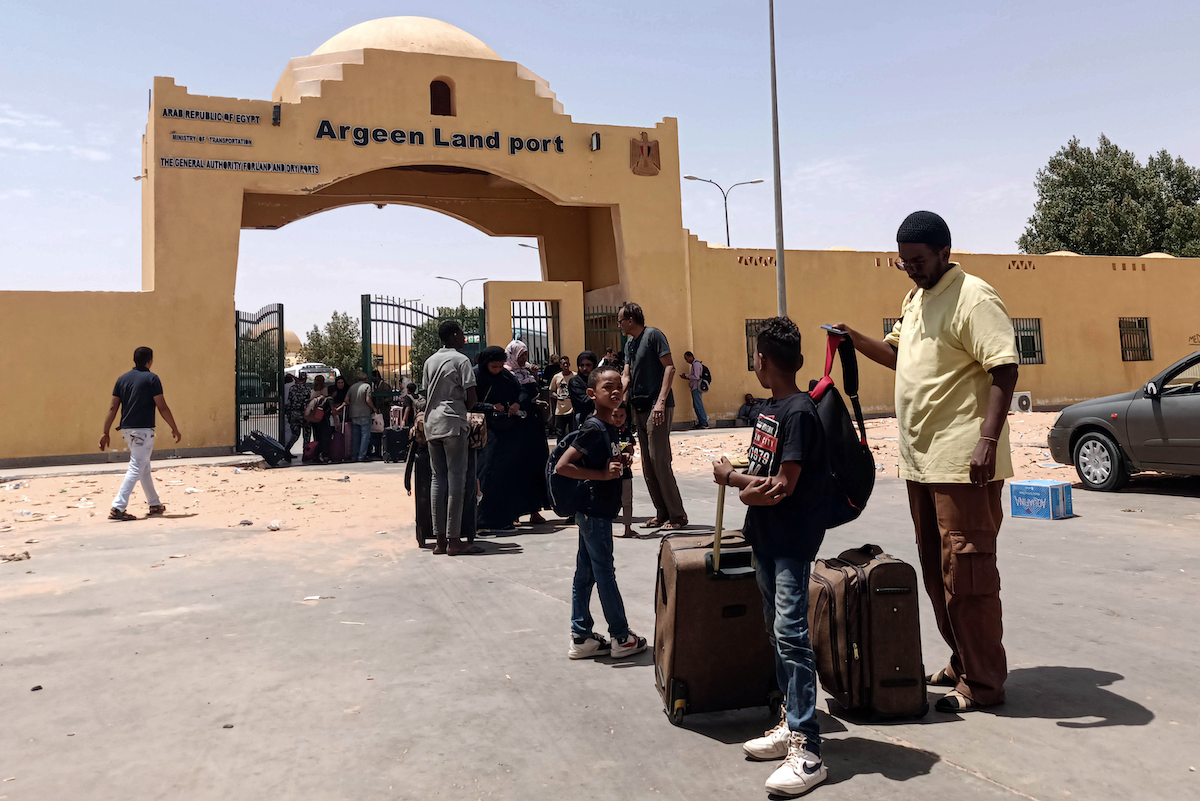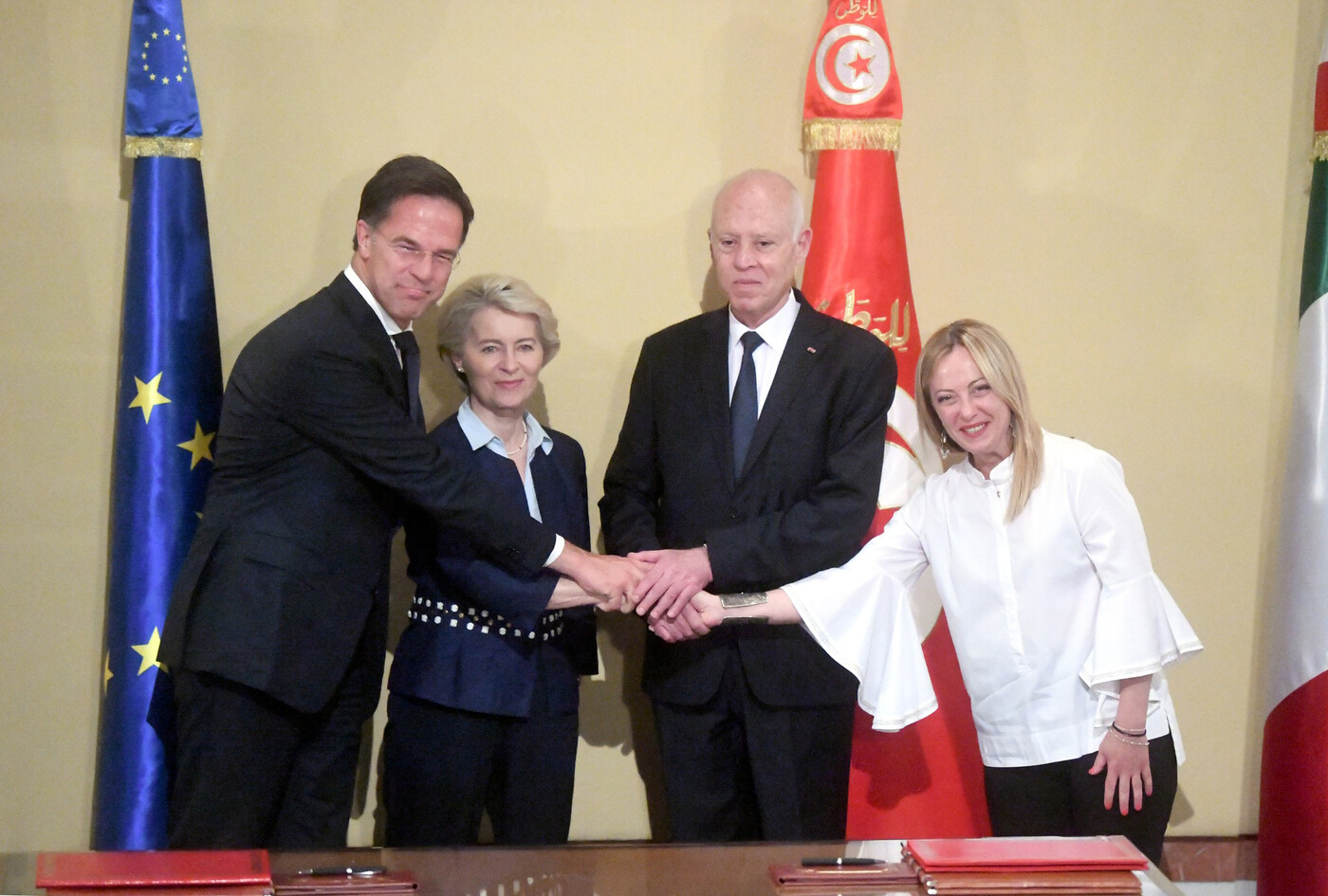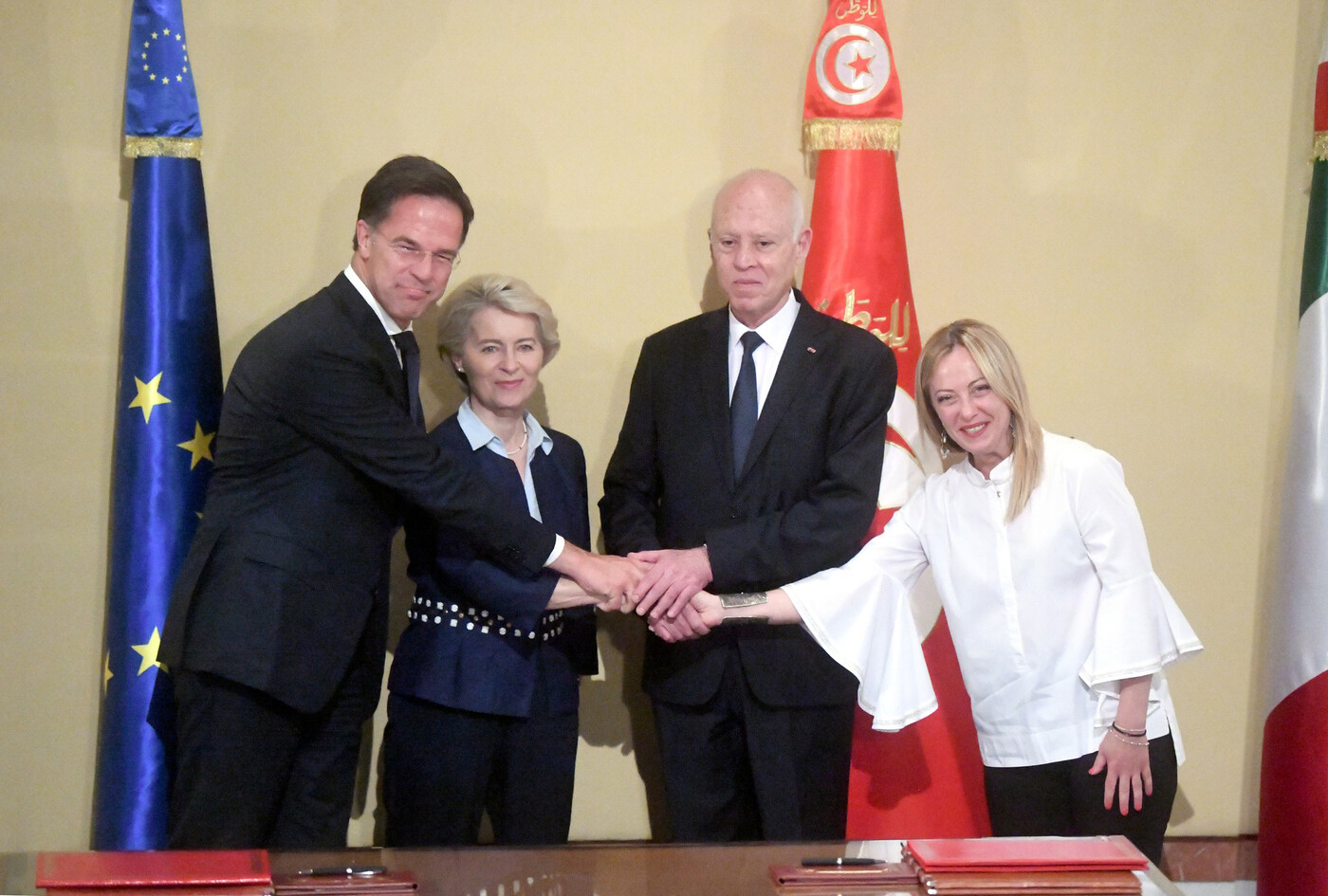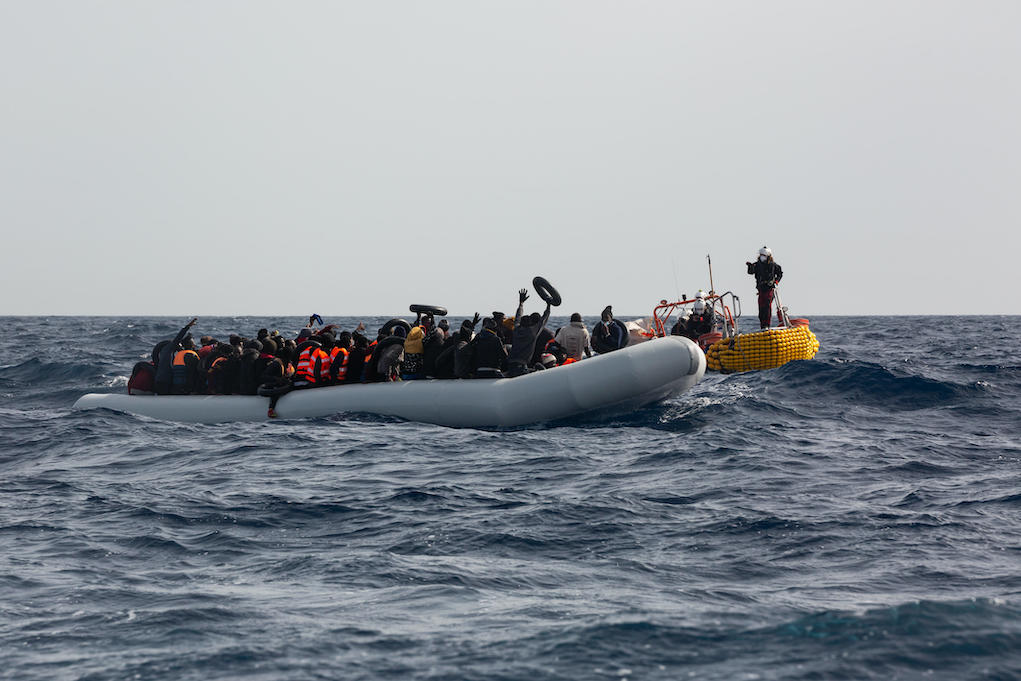MEDIENDIENST Integration: Last week the European Union announced that it will strengthen the cooperation with the Egyptian government on migration . Why is Egypt important for the EU?
Parastou Hassouri: The EU wants to contain migration. Egypt therefore is important for the EU in two different ways. First: because many Egyptians want to leave the country, due both to the political – and especially the difficult economic situation in the country. Second, due to its geographic location, Egypt is a major transit country for refugees and migrants from other countries who may also want to migrate further, possibly in the direction of the EU. In the past year, in particular, Egypt has seen a large increase in the number of Sudanese refugees, who are fleeing the war that erupted last April 2023.
What is the content of the deal: what does the EU get from Egypt?
The EU gets Egypt to try to stop refugees and migrants to leave irregularly for Europe. This cooperation has been implemented for quite some time already – boat departures from the Egyptian coast have fallen dramatically since the peak of the so-called migration crisis in 2015-2016.
The most recent figures show that there is an increasing number of Egyptian asylum seekers in the EU...
Yes, but they don’t all necessarily depart from Egypt, since border control has become stricter. Many people therefore cross to Libya and from there even further on to Tunisia in order to reach the EU.
What’s the reason for the increasing number of Egyptian asylum seekers in Europe?
The economic situation here is very challenging: very high inflation, increase in prices, high unemployment. The Egyptian pound has lost its value significantly. This is the primary driver of migration. Some people also leave for political reasons, given that in general the system here is authoritarian.
There are also non-Egyptian nationals living in Egypt who want to migrate to other countries…
Indeed. Egypt hosts a large number of migrants and refugees. The major groups of refugees here are Sudanese, Syrians and South Sudanese, followed by Eritreas and Ethiopians.
Parastou Hassouri is a Cairo-based, independent researcher and consultant focusing on refugee and migration law and policy. She teaches courses on international refugee law and Palestinian refugees and international law at The American University of Cairo, and has worked as a consultant both with offices of the UN High Commissioner for Refugees and with NGOs amongst others in Egypt, Turkey, Greece, Morocco, and Jordan. The views expressed in this interview are her own and do not reflect the views or position of any institutions with which she has been affiliated.
How many refugees and migrants does Egypt host overall?
It’s hard to come up with exact figures, because we don’t live in a transparent system here and there are always those people who data doesn’t capture. According to the UNHCR, there are at the moment 480.000 registered refugees in Egypt. However, these are only the people who have approached UNHCR and have received the status of refugees. It doesn’t include people who have been denied the refugee status or have simply not been registered by the UNHCR. So, we are definitely dealing with many more people than those 480.000 registered refugees.
Unsurprisingly, the Sudanese are the biggest group of refugees in Egypt. Since the war in Sudan broke out in April last year almost 6 million people have left their homes and are living as “internally displaced people”. 1.5 million refugees have fled the country. How are the Sudanese accepted in Egypt?
According to UNHCR 400.000 Sudanese refugees have crossed to Egypt since the beginning of the war, 215.000 of which are already formally registered with the UNHCR. Again, in reality it's most likely to be many more, especially considering that there is a big Sudanese community here in Egypt. The conditions for the Sudanese refugees who come here are difficult, because, as I’ve said already, the situation in Egypt is extremely dire. There are no jobs, it’s hard to find accommodation. In the current situation, Egypt is simply not able to handle these numbers of refugees. In addition, unfortunately, there is also a lot of anti-African racism in Egypt: African kids get harassed in schools, women are being sexually assaulted, many don’t feel safe on the streets at all.
Has Egypt ever thought about pushing back the refugees from Sudan?
Egypt has not thought about implementing measures the way that you hear about in places like the US – like President Trump talking about a wall on the border with Mexico, or the idea of a "fortress" that the EU is building around its borders. Egypt and Sudan have a long and common history that includes a lot of movement between the two countries and a treaty called the Four Freedoms agreement, that gives Egyptian and Sudanese reciprocal rights to free movement, residency, work and property ownership – even if has not yet been fully implemented. The Egyptian government does sometimes apprehend Sudanese and other migrants and asylum seekers who enter the country in an unauthorized manner. But there have not been large-scale pushbacks.
What about refugees from Gaza – how many have come to Egypt after October 7?
Again, we don’t have precise figures. Though some Palestinians from Gaza have been admitted to Egypt for medical treatment, there are also anecdotal accounts of some coming to Egypt by paying bribes. It is impossible to know the exact number, but it’s not very high at this point.
Does Egypt have a functioning asylum system?
No, Egypt does not have a domestic legal framework for asylum - although they’ve signed the Geneva Convention. So, instead, the tasks are all delegated to the UNHCR: They register refugees, conduct the interviews to determine if someone is actually a refugee, and if so, hand out the refugee documents. However, even though this card is valid for 18 months, refugees also need an additional residence stamp from the Egyptian foreign ministry in order to reside here legally. So basically, they need to renew their status every six months.
From what you say, it is reasonable to assume that many Egyptians and non-Egyptians intend to leave the country...
Definitely. Most migrants and refugees in Egypt do not come to Egypt as their final destination. They hope to migrate elsewhere, whether the EU or North America. Also, many Egyptians think about migration. So, it makes sense that the EU would want to cooperate closely with Egypt to manage and contain migration. From a rule of law and human rights perspective, however, EU citizens really need to ask themselves at what cost are they willing to prevent refugees from entering the EU. Are they OK with having their governments cooperating with governments that have been known for years to have a poor human rights record? I think it is valid to be concerned about any measures that further strengthen law enforcement bodies in Egypt, given their conduct in the past.
This brings me back to my original question about the EU-Egypt-cooperation on migration: How does Egypt profit from it?
These migration management cooperation agreements include some assistance and aid for the target countries, including projects meant to help enhance skills and job training opportunities for the local population and for migrants. But they also provide training and equipment for border police. The concern that some have is that equipment meant only to be used for the purpose of border control could be used against local populations – things like surveillance equipment, drones, etc. And this is especially of concern when you are talking about governments that have had a poor human rights record, and where people who are detained are held in very poor conditions.
Will the increased cooperation achieve the desired effect of stopping migration towards Europe?
In our research we've seen that many times over: You may have short term effects, but over the longer term, when a route is blocked new routes will emerge. For Egyptians – and sub-Saharan Africans even more – there are hardly any legal pathways to Europe at all. They don’t get Visas, because in most European countries the authorities assume that, once they’ve entered EU-territory, they have no intention of leaving again. So, the only way for nearly everyone who wants to leave the country is the so-called irregular migration. Since departing irregularly from Egypt is almost impossible nowadays, people are pushed to the alternate migration route via Libya. Considering the horrible situation in Libya, it’s quite unfortunate that these cooperation agreements push people onto more dangerous routes.
Interview: Donata Hasselmann, Graphics: Fabio Ghelli




